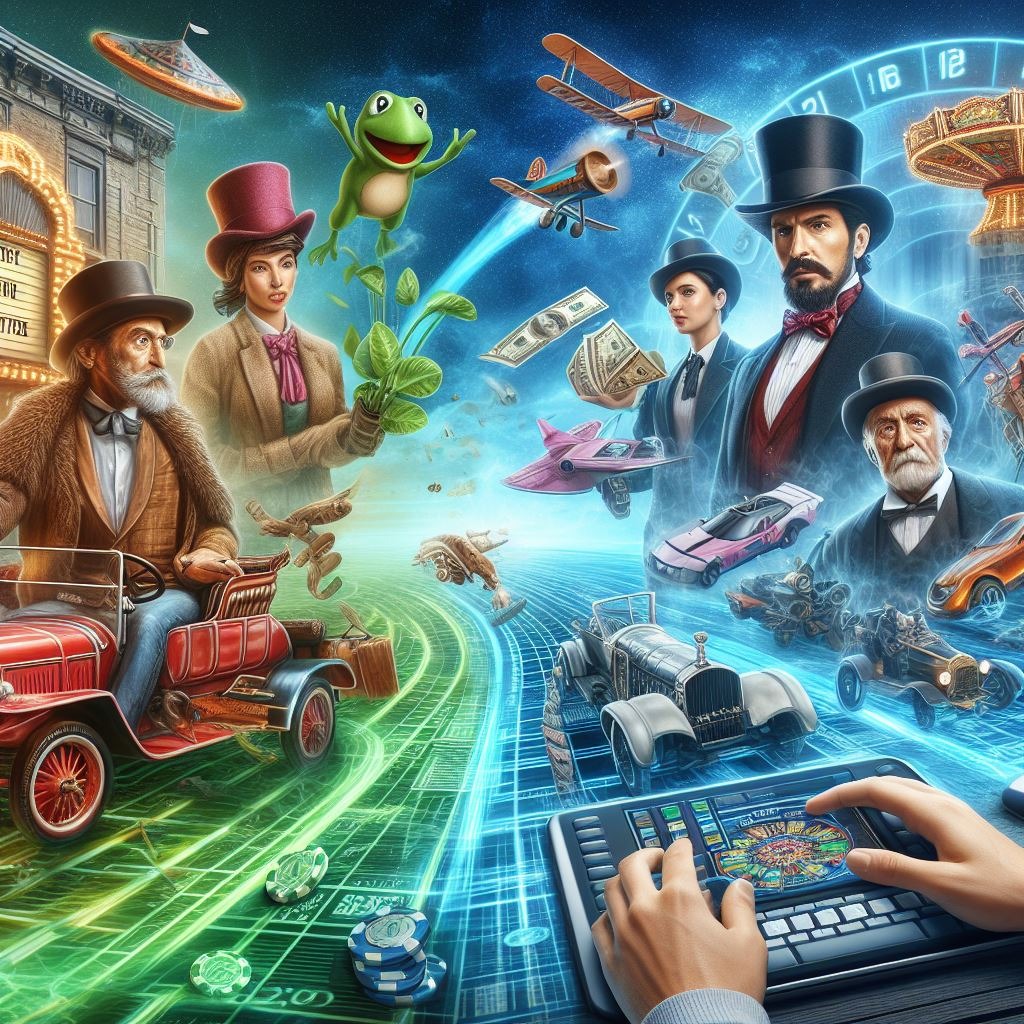Casino games have been a popular form of entertainment for centuries, providing thrill and excitement to players around the world. Traditionally, these games were played in brick-and-mortar casinos, where players gathered around tables and slot machines to try their luck. However, with the advent of digital technology, the casino industry has undergone a significant transformation. In this article, we will explore the evolution of casino games from traditional to digital formats and the impact of this transformation on the gaming industry.
The Rise of Online Casinos:
The first major shift in the casino industry came with the emergence of online casinos in the mid-1990s. Online casinos allowed players to enjoy their favorite casino games from the comfort of their own homes. By leveraging the power of the internet, these platforms offered a wide range of games, including classic table games like blackjack, roulette, and poker, as well as slot machines and other popular casino offerings.
The convenience and accessibility of online casinos quickly gained traction among players who were unable to visit physical casinos due to geographical constraints or other limitations. Online casinos provided a virtual gambling experience, complete with realistic graphics, sound effects, and even live dealer options for certain games. Players could place bets, interact with other players through chat features, and potentially win real money, all with just a few clicks.
The Advancements in Mobile Gaming:
As technology continued to advance, another significant shift occurred with the rise of mobile gaming. With the widespread adoption of smartphones and tablets, players could now access their favorite casino games on the go. Mobile casino apps and responsive websites allowed players to enjoy a seamless gaming experience on their mobile devices, anytime and anywhere.
The introduction of mobile gaming opened up new possibilities for the casino industry. Players could now play a quick hand of blackjack during their lunch break or spin the reels of a slot machine while waiting for public transportation. Mobile gaming not only provided convenience but also expanded the player base, attracting a younger demographic who were more accustomed to mobile devices and digital entertainment.
See Also:



The Emergence of Live Dealer Games:
While online casinos brought the casino experience to players’ homes, there was still a desire for a more immersive and authentic gaming experience. This led to the emergence of live dealer games. Live dealer games combine the convenience of online casinos with the interactive nature of traditional brick-and-mortar casinos.
In live dealer games, real-life dealers operate the games in a studio or land-based casino setting, with the action streamed live to players’ devices. Players can interact with the dealers and other players through chat functions, adding a social element to the virtual gambling experience. Live dealer games typically include popular table games like blackjack, roulette, baccarat, and poker, creating a realistic and engaging atmosphere that closely resembles playing in a physical casino.
The Integration of Virtual Reality (VR) and Augmented Reality (AR):
The latest frontier in the transformation of casino games is the integration of virtual reality (VR) and augmented reality (AR) technologies. VR technology creates a fully immersive 3D environment where players can explore virtual casinos, interact with other players, and play games as if they were physically present. VR headsets provide a more realistic and immersive experience, making players feel as though they are walking through a casino floor.
On the other hand, AR technology overlays digital elements onto the real world, enhancing the player’s perception of their physical surroundings. AR can be used to create interactive casino experiences, where players can see virtual slot machines or card tables overlaid onto their real environment using their mobile devices or specialized glasses.
The integration of VR and AR technologies in casino games has the potential to revolutionize the industry further. It offers a more engaging and interactive experience, blurring the lines between the physical and digital realms. Although VR and AR technologies are still in their early stages of adoption, they hold immense promise for the future of casino gaming.
The Impact on the Gaming Industry:
The transformation of casino games from traditional to digital formats has had a profound impact on the gaming industry as a whole. Here are some key effects:
- Market Expansion: The transition to online and mobile platforms has expanded the reach of the casino industry, allowing players from all over the world to participate in casino games. This has led to significant market growth and increased revenue for the industry.
- Accessibility and Convenience: Online and mobile casinos have made casino games more accessible than ever before. Players no longer need to travel to physical casinos or adhere to their operating hours. The convenience of playing anytime and anywhere has attracted new players and retained existing ones.
- Technological Advancements: The transformation of casino games has been driven by advancements in technology. The industry has embraced innovative technologies like live streaming, mobile gaming, VR, and AR, pushing the boundaries of what is possible in the gaming experience.
- Changing Demographics: The digital transformation of casino games has attracted a younger demographic who grew up with technology and prefers digital entertainment options. This has led to shifts in marketing strategies and game offerings to cater to the preferences of this new audience.
- Enhanced PlayerEngagement: Digital casino games have introduced new features and interactive elements that enhance player engagement. From live dealer games to social interactions with other players, the digital format has made casino gaming a more immersive and social experience.
- Regulation and Security: The rise of online and mobile casinos has necessitated the development of regulations and security measures to ensure fair play and protect players’ personal and financial information. Licensing bodies and regulatory frameworks have been established to maintain the integrity of digital casino games and provide players with a safe and secure environment to gamble.
- Evolution of Game Design: The digital format has allowed for more innovative and creative game design. Casino game developers have been able to experiment with new features, animations, and themes, providing players with a wide variety of choices and enhancing the overall gaming experience.
Conclusion: The Transformation of Casino Games
The transformation of casino games from traditional to digital formats has revolutionized the industry, offering players unparalleled convenience, accessibility, and immersive experiences. From the advent of online casinos to the integration of VR and AR technologies, the evolution of casino games continues to push the boundaries of what is possible in the gaming world. As technology advances further, we can expect even more exciting developments that will shape the future of casino gaming. Whether it’s playing on a mobile device, participating in a live dealer game, or stepping into a virtual casino, the digital transformation has brought the thrill of the casino to players like never before.










